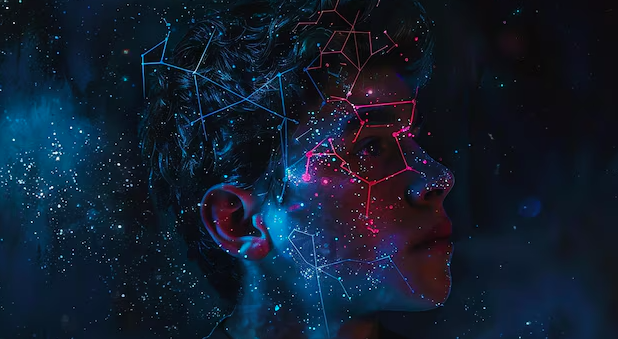— A Vedāntic Reflection on Feeling Before Thinking
In a world that prioritizes logic, analysis, and proof, some of us live from a deeper rhythm – one that feels first and understands later. We sense the truth in a silence, resonate with people’s energy before their words, and experience meaning not through facts, but through feeling.
This way of being is often dismissed as “emotional,” “irrational,” or “too sensitive.” But in the light of Vedānta, this is not a weakness. It is a sacred orientation – a legitimate mode of knowing, grounded in ancient wisdom.
The Inner Instruments: Manas and Buddhi
According to Vedānta, the human being perceives and processes the world through an antahkaraṇa – the inner instrument, made of four parts:
| Aspect | Function |
|---|---|
| Manas | The mind: feels, senses, doubts |
| Buddhi | The intellect: discerns, decides |
| Ahamkāra | The ego: constructs identity |
| Chitta | Memory: stores impressions (samskāras) |
When you understand life through emotion, your manas is active before your buddhi. You receive life as experience, not as theory. This doesn’t make you less wise, it means you are attuned to subtle vibrations of being, the unspoken truth between the lines.
Shraddhā and Yukti – Two Eyes of Wisdom
Vedānta recognizes two complementary pathways to truth:
- Shraddhā: intuitive trust, heart-centered knowing
- Yukti: logical reasoning, analysis of the scriptures and self
Most people begin their spiritual path through either one. Bhakti yogis feel first, then understand. Jnana yogis understand first, then feel. But the goal of Vedānta is integration – to harmonize these two in the fire of Self-realization (ātma-jñāna).
“For one with faith and devotion, who has mastered the senses, knowledge dawns.” – Bhagavad Gītā 4.39
Emotion Is Not the Opposite of Logic – It Is Its Root
Emotion (bhāva) is not a deviation from truth. It is a language of the soul. Logical understanding arises later, but it stands on the emotional experience of being alive.
In Vedantic psychology, emotion arises from the play of guṇas (sattva, rajas, tamas), and from deeper karmic impressions stored in chitta. When purified through meditation and inquiry, emotion becomes devotion, and devotion becomes wisdom.
The Gift of Feeling First
Those who understand life through emotion:
- Tune into others’ pain without being told
- Sense divine presence in silence and music
- Know when something feels “off” even before facts confirm it
- Can cry from the beauty of a sunset without explaining why
This isn’t irrational. It’s a form of inner clarity – what the sages call sūkṣma buddhi (subtle intelligence).
You are not lost. You are simply closer to the soul than most.
A Vedāntic Reminder
Vedānta doesn’t reject the mind or emotions – it teaches disidentification. Whether logic or emotion arises, don’t cling to them. Witness them.
“You are not the mind. You are not the emotion. You are the awareness in which they rise and fall.”
When emotion is purified through presence, it guides. When logic is softened by compassion, it liberates. Both are needed. But you as Ātman, are beyond both.
Closing Reflection
To feel is not to be weak. To understand life through emotion is not to be irrational. It is to walk the path of the heart, where love is a teacher, silence is scripture, and every tear is a mantra dissolving illusion.
Your path is sacred. Let it unfold through feeling. And trust that what your heart knows, your mind will someday understand.
Note:
If this resonated with you, share it with someone who feels deeply, loves honestly, and lives gently.


Leave a Reply